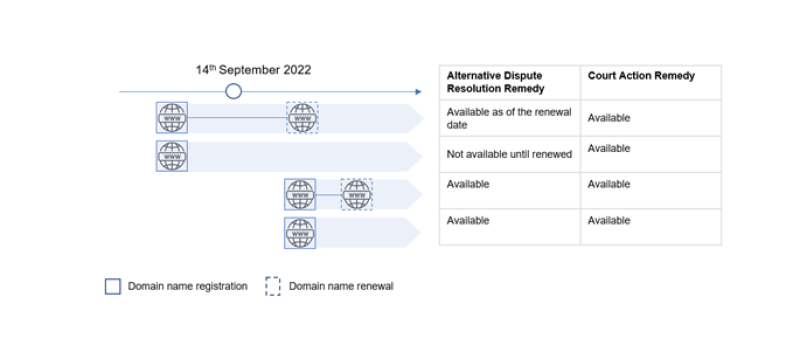Nic.tr (.tr Domain Name Management), which was established under the auspices of Middle East Technical University, has been managing .tr domain names and dispute resolution processes related to these domain names since 1991. However, under Article 35 of Law No. 5809 on Electronic Communications and the Internet Domain Names Regulation, TRABIS (.tr Network Information System), established by the Information and Communication Technologies Authority, became operational on September 14 2022 and is now managing .tr domain names.
Changes under TRABIS
TRABIS serves as the system that manages the registration, renewal and operation of .tr domain names. Within the scope of TRABIS, the registry and registrar model, which is implemented worldwide in accordance with the Internet Corporation for Assigned Names and Numbers, has started to be fully implemented in Turkey. Within this framework, services are provided by registrars approved by TRABIS, which mediate transactions related to domain names, such as domain name application, renewal and cancellation.
Upon the introduction of TRABIS, a ‘first come, first served’ principle has started to be implemented for the allocation of domain names such as com.tr, org.tr, net.tr, gen.tr, biz.tr, tv.tr, web.tr, info.tr, bbs.tr, tel.tr, and name.tr. The obligation to submit documents to prove the rights of the applicant has been abolished. This new situation is expected to result in third parties' registration of domain names before the trademark holders register their domain names.
Dispute resolution service providers, which are granted an activity certificate by TRABIS, have started to handle the alternative dispute resolution process regarding domain names. Accordingly, dispute resolution service providers evaluate disputes regarding domain names by taking into consideration the relevant legislation, case law and judicial decisions through their arbitrators or arbitral tribunals and may decide upon the cancellation of domain names, their transfer to the complainant or the rejection of the complainant's request, depending on the request of the complainant.
In addition, it is still possible to file a civil court action before the courts for the cancellation of .tr domain names.
The Internet Domain Names Regulation has introduced a different scheme regarding the alternative dispute resolution mechanism for domain names registered before the enforcement of TRABIS. Under paragraph 9 of Provisional Article 1 of the Internet Domain Names Regulation and Provisional Article 3 of the Communiqué on Dispute Resolution Mechanism for Internet Domain Names, no application can be filed to the alternative dispute resolution mechanism for domain names that were allocated before TRABIS became operational.
It is possible to apply to dispute resolution service providers with regard to domain names with a .tr extension registered after September 14 2022, when TRABIS launched its activities. However, it is only possible to apply to dispute resolution service providers concerning domain names with a .tr extension registered before September 14 2022 after their renewal date. Therefore, under current legislation, disputes related to such domain names can only be brought to court.

Analysis of the new system
Given that .tr domain names can be registered and allocated for up to five years, it can be considered that the unavailability of an alternative dispute resolution method against a domain name that was registered or renewed for five years shortly before September 14 2022 creates a significant loss of rights during this period. This dual regulation may be considered as contradicting the principle of equality set forth in the Constitution and the freedom to seek rights.
Indeed, the alternative dispute resolution methods envisaged for domain names are fast and are finalised within a few months, whereas the process takes longer and may take up to several years to be finalised in the case of judicial proceedings before the courts regarding domain names. These proceedings are also more burdensome in terms of costs.
Furthermore, while the cancellation, or transfer to the complainant, of the disputed domain name can be claimed through the alternative dispute resolution method, only the cancellation of the disputed domain name can be claimed before the courts. This shows that litigation is less advantageous than the alternative dispute resolution method for domain name disputes.
This system, which creates an unequal situation in domain name disputes, should be addressed promptly and the alternative dispute resolution method should be made accessible for domain names allocated and/or renewed before September 14 2022, through a legislative amendment.














